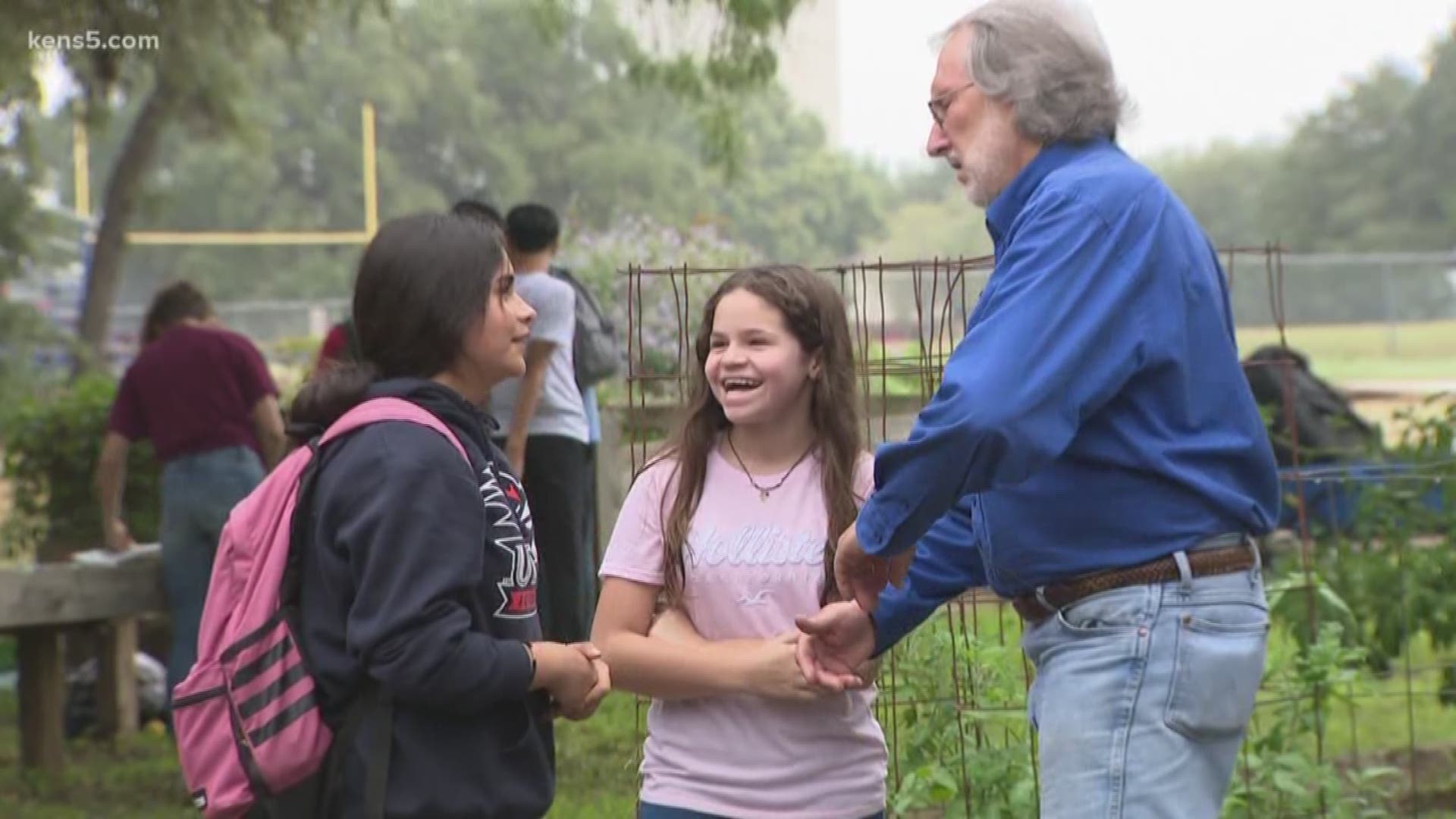Farming fundamentals for city kids, taught in an open-air classroom behind Rudder Middle School by a gardening guru.
"We're suggesting 2 rows of lettuce, 2 rows of spinach, 1 row of radish,” said the man with long gray hair and blue jeans, standing at a dry-erase board behind a shed in a sprawling vegetable garden. “And 1 row of carrots.”
David Oberg is a retired teacher who still coaches gardening basics to several dozen middle school children, seated at benches before him. They’re listening intently.
"In the classroom, you may not be able to get all of them interested in what you’re doing,” he said. “But when you come out here, they have a job to do!"
Soon, the students are kneeling around a half-dozen raised beds nearby, planting seeds.
"David Oberg has a passion for teaching and learning and kids,” Rudder Middle School principal Mary Jewell said. “He started his career here, ended his career here, and he still comes back to volunteer and help our community."
David Oberg has a passion for planting seeds and ideas. He taught science here at Earl Rudder for 36 years and grew this 2-acre garden complex from one small plot.
"You've gotta start with something small and then keep working on it. This is 30-something years of work," he said.
It's not just a garden, either. It's an advanced environmental research area, a wildlife habitat and the recipient of many educational grants. He retired from his paid position two years ago, but just can't stop tilling the soil or teaching the science.
"Worms are good,” he said to a student. And the kids are clearly his most important crop.
"We get to see how the plants are growing, instead of seeing it in a textbook,” said Cecile Tchandja, a 7th grade student farmer, “Or in a grocery store.”
Oberg’s number one objective – getting these students to understand nature first-hand.
"Getting the kids outside, to experience nature,” he said. “These kids are nature-deprived, so that's part of my emphasis is getting kids outside."
These Northside ISD students come outside to plan, plant, prune and harvest their own vegetables - and learn about insects, too. Specifically, migrating monarchs. Oberg has also overseen the development of an extensive array of pollinator gardens, made up of flowering bushes that attract hungry butterflies. His students have participated in national science projects requiring them to tag hundreds of butterflies.
"Kids are fascinated by it, 'cause its not just catching butterflies. It's scientific data, scientific research that they're filling in."
Oberg even coaches other teachers on growing outdoor classrooms.
“It can be intimidating, but now I go around to some of the other schools and I assist them, I work with them and give 'em that support that they need," he said.
Today, his students are planting cole crops like broccoli, radishes, carrots and lettuce. "I think it's amazing,” said Tchandja, “for him to come here to help us plant all these gardens, even after he’s retired, I think it's an awesome thing that he's doing." So when will Oberg retire?
"I don't think I will,” he said. “It'll take me a lot to get me out of the garden, and to get me away from these kids and these teachers.”
He's man on a mission. Even after 36 years connecting kids and crops. That's why he's another one of the people who make San Antonio great!

